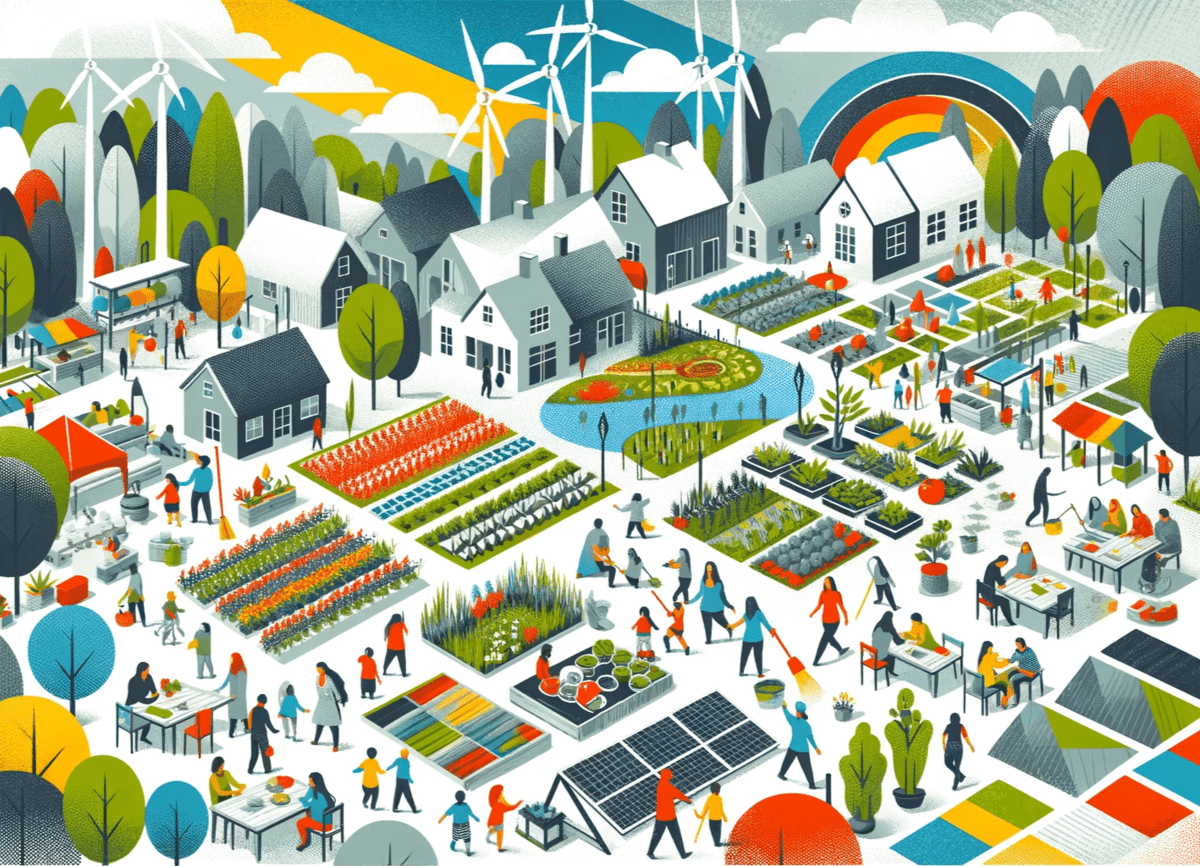What is degrowth communism?
This interview with Kohei Saito in EL PAÍS talks about the importance of having a positive view of the future, with “a society that adapts to the limits of nature and offers universal access to education, health, transportation, internet”.
Sounds good to me.

We are in a chronic state of emergency. The pandemic was not the last crisis, but rather the beginning of more problems. We should not forget that moment [during lockdown] when, consciously, we halted capitalism. It seemed impossible. But it happened. For a short time. A good moment to establish some distance: people came back more anti-capitalist and inclined towards degrowth. Let’s remember that.Source: Kohei Saito, philosopher: ‘Spending so much money, effort and time on going to Mars is stupid’ | Climate | EL PAÍS English[…]
I talk about a degrowth communism: a society that adapts to the limits of nature and offers universal access to education, health, transportation, internet… Due to a variety of crises, access to these services — the common good — has been undermined for many. But without positive visions of the future, there will be more and more discontent. What we need is to build a broad movement: environmentalist, working-class, feminist, Indigenist… To propose an inclusive and emancipatory future.
[…]
The Anthropocene signifies that humans have become a geological force, with the ability to modify the planet. But not everyone is equally responsible for this situation. It’s primarily the people of the Global North; particularly, the super-rich who think they can do it all with their money, even flee the Earth. That idea of conquest originates with European colonialism, linking imperialism, capitalism and progress. We should also restrict space shuttles, like SpaceX. Spending so much money, effort and time on going to Mars seems stupid to me; we should invest that energy in saving our planet. As a philosopher, I’m an optimist. Our perception, our values, can change in two or five years. Opportunities for change are everywhere. I want to explore what they are.
The techno-feudal economy
Yanis Varoufakis is best known for his short stint as Greek finance minister in 2015 during a stand-off with the European Central Bank, the International Monetary Fund and the European Commission. He’s used that platform to speak out about capitalism and publish several books.
This interview with EL PAÍS is interesting in terms of his analysis of our having moved beyond capitalism to what he calls ‘technofeudalism’. Varoufakis believes that this new economic order has emerged due to the privatisation of the internet and the response to the 2008 financial crisis. Politicians have lost power over large corporations and the system that has emerged is, he believes, incompatible with social democracy and feminism.

Capitalism is now dead. It has been replaced by the techno-feudal economy and a new order. At the heart of my thesis, there’s an irony that may sound confusing at first, but it’s made clear in the book (Technofeudalism: What Killed Capitalism). What’s killing capitalism is capitalism itself. Not the capital we’ve known since the dawn of the industrial age. But a new form, a mutation, that’s been growing over the last two decades. It’s much more powerful than its predecessor, which — like a stupid and overzealous virus — has killed its host. And why has this occurred? Due to two main causes: the privatization of the internet by the United States, but also the large Chinese technology companies. Along with the way in which Western governments and central banks responded to the great financial crisis of 2008.Source: Yanis Varoufakis: ‘Capitalism is dead. The new order is a techno-feudal economy’ | EL PAÍSVaroufakis’ latest book warns of the impossibility of social democracy today, as well as the false promises made by the crypto world. “Behind the crypto aristocracy, the only true beneficiaries of these technologies have been the very institutions these crypto evangelists were supposed to want to overthrow: Wall Street and the Big Tech conglomerates.” For example, in Technofeudalism, the economist writes: “JPMorgan and Microsoft have recently joined forces to run a ‘blockchain consortium,’ based on Microsoft data centers, with the goal of increasing their power in financial services.”
[…]
Capitalism only brings enormous, terrible burdens. One is the exploitation of women. The only way women can prosper is at the expense of other women. No, in the end — and in practice — feminism and democratic capitalism are incompatible.